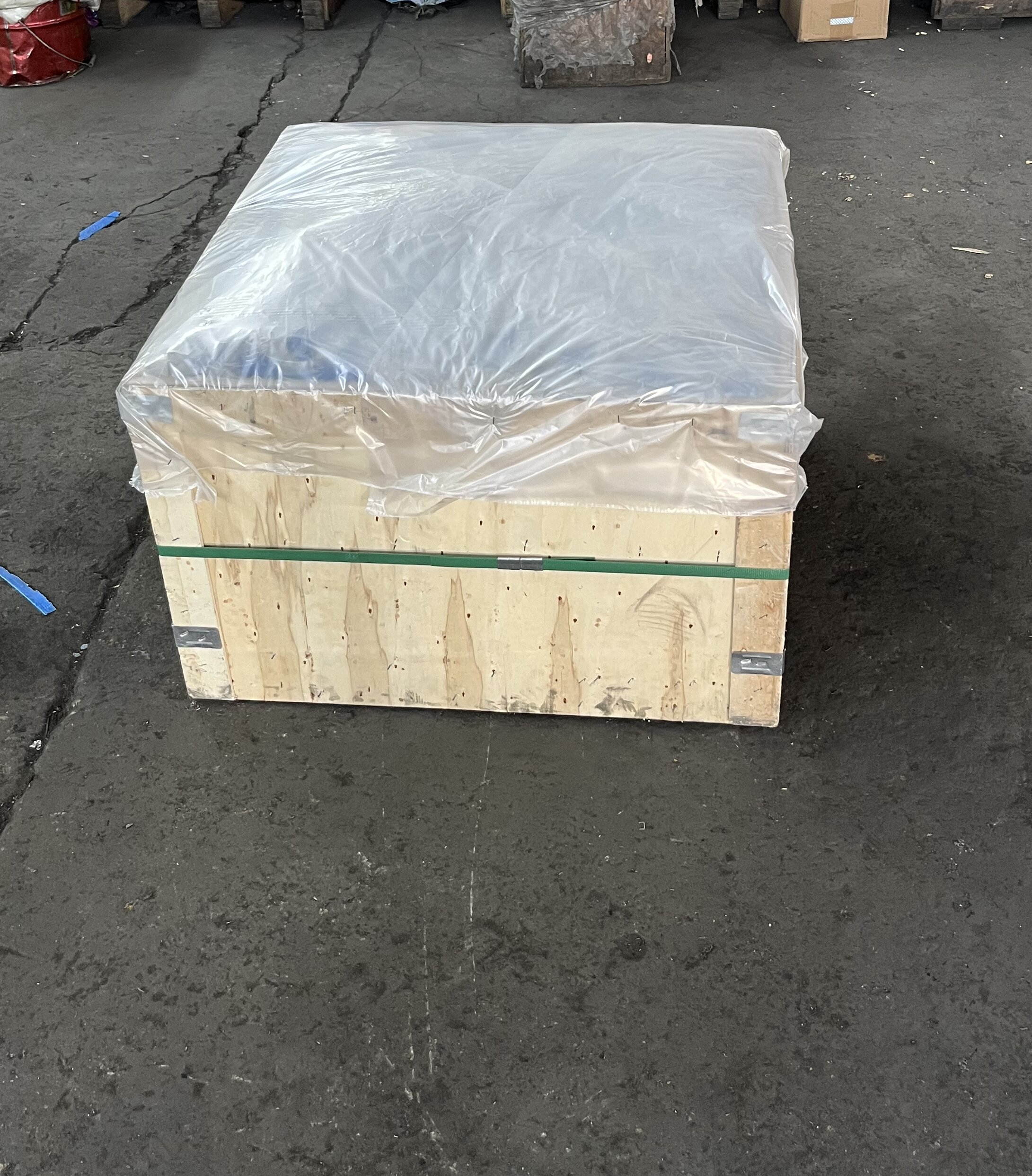-
Cangzhou Yulong Steel Co., Ltd.
-
Phone:
+86 13303177267 -
Email:
admin@ylsteelfittings.com
- English
- Arabic
- Italian
- Spanish
- Portuguese
- German
- kazakh
- Persian
- Greek
- French
- Russian
- Polish
- Thai
- Indonesian
- Vietnamese
- Zulu
- Korean
- Uzbek
- Hindi
- Serbian
- Malay
- Ukrainian
- Gujarati
- Haitian Creole
- hausa
- hawaiian
- Hebrew
- Miao
- Hungarian
- Icelandic
- igbo
- irish
- Japanese
- Javanese
- Kannada
- Khmer
- Rwandese
- Afrikaans
- Albanian
- Amharic
- Armenian
- Azerbaijani
- Basque
- Belarusian
- Bengali
- Bosnian
- Bulgarian
- Catalan
- Cebuano
- China
- China (Taiwan)
- Corsican
- Croatian
- Czech
- Danish
- Esperanto
- Estonian
- Finnish
- Frisian
- Galician
- Georgian
- Kurdish
- Kyrgyz
- Lao
- Latin
- Latvian
- Lithuanian
- Luxembourgish
- Macedonian
- Malgashi
- Malayalam
- Maltese
- Maori
- Marathi
- Mongolian
- Myanmar
- Nepali
- Norwegian
- Norwegian
- Occitan
- Pashto
- Dutch
- Punjabi
- Romanian
- Samoan
- Scottish Gaelic
- Sesotho
- Shona
- Sindhi
- Sinhala
- Slovak
- Slovenian
- Somali
- Sundanese
- Swahili
- Swedish
- Tagalog
- Tajik
- Tamil
- Tatar
- Telugu
- Turkish
- Turkmen
- Urdu
- Uighur
- Welsh
- Bantu
- Yiddish
- Yoruba

Dec . 16, 2024 22:23 Back to list
national pipe thread fittings
Understanding National Pipe Thread Fittings A Comprehensive Overview
National Pipe Thread (NPT) fittings are integral components in various plumbing, hydraulic, and mechanical systems across multiple industries. They play a crucial role in ensuring tight seals and reliable fluid flow. This article will delve into the intricacies of NPT fittings, discussing their design, applications, advantages, and installation considerations.
What are National Pipe Thread (NPT) Fittings?
NPT fittings are a type of threaded fitting that employs a tapered thread design. The taper means that as the fitting is screwed into a corresponding threaded opening, the two components draw closer together, creating a seal. The National Institute of Standards and Technology (NIST) established NPT as a standard in the United States, ensuring compatibility and uniformity in pipe connections.
NPT fittings are typically made from materials such as brass, stainless steel, carbon steel, or plastic, depending on the application and environmental conditions. The choice of material often influences the fitting's resistance to corrosion, temperature range, and mechanical strength.
The Design Features of NPT Fittings
The primary characteristic of NPT fittings is their tapered thread design. This tapering allows for a tight fit that enhances sealing capability. Here are some key design features
1. Tapered Threads The threads on NPT fittings are cut at a 1°47' angle, which means they come together more tightly as they are twisted into place.
2. Sealant Usage Despite the tight fit, many professionals use thread sealants like PTFE (Teflon) tape or pipe dope to enhance sealing and prevent leaks.
3. Standard Sizes NPT fittings come in various sizes, indicated by their nominal pipe size (e.g., ½ inch, ¾ inch). It's essential to choose the correct size to avoid issues related to flow and pressure.
4. Right-Hand Threading NPT fittings typically use right-hand threading, which means they tighten in a clockwise direction.
Applications of NPT Fittings
NPT fittings are utilized across various industries due to their versatility and reliability. Common applications include
- Plumbing NPT fittings are widely used in residential and commercial plumbing systems. They connect pipes, faucets, and fixtures, ensuring tight seals to prevent leaks.
- Hydraulic Systems In hydraulic applications, NPT fittings are used to connect hoses and pipes that carry hydraulic fluids under pressure.
- Gas Systems They are crucial in natural gas and propane applications, where secure fittings are necessary for safety and efficiency.
national pipe thread fittings

- Industrial Machinery NPT fittings are found in various industrial setups, ensuring that machines operate smoothly without leaks in pneumatic or hydraulic systems.
Advantages of NPT Fittings
NPT fittings provide numerous benefits, making them a popular choice in many applications
- Easy Installation The straightforward design makes installation relatively simple, even for those with limited experience.
- Cost-Effectiveness NPT fittings are generally affordable and widely available, making them an economical choice for many projects.
- Reliability The tapered thread design ensures a tight seal, reducing the risk of leaks, which can be particularly critical in high-pressure applications.
- Versatility With compatibility across numerous pipe materials and types, NPT fittings can be used in various systems.
Installation Considerations
While installing NPT fittings is usually straightforward, certain guidelines can help ensure optimal performance
1. Clean Threads Always ensure that both male and female threads are clean and free of debris before installation.
2. Use Thread Sealant Applying PTFE tape or pipe dope can help create an airtight seal and reduce the risk of leaks.
3. Do Not Over-Tighten While NPT fittings are designed to create a tight seal through their tapering, over-tightening can damage the threads and lead to leaks.
4. Check Compatibility Always verify that the fitting material is suitable for the fluid being transferred to avoid chemical reactions or corrosion.
Conclusion
National Pipe Thread fittings are essential components in various systems, offering reliable sealing and ease of installation. Their unique design, combined with their versatility, makes them an industry standard for plumbing, hydraulic, gas, and industrial applications. Understanding their features, advantages, and installation practices is crucial for professionals and DIY enthusiasts alike, ensuring safe and efficient operations in their respective systems.
Latest news
-
ANSI 150P SS304 SO FLANGE
NewsFeb.14,2025
-
ASTM A333GR6 STEEL PIPE
NewsJan.20,2025
-
ANSI B16.5 WELDING NECK FLANGE
NewsJan.15,2026
-
ANSI B16.5 SLIP-ON FLANGE
NewsApr.19,2024
-
SABS 1123 FLANGE
NewsJan.15,2025
-
DIN86044 PLATE FLANGE
NewsApr.19,2024
-
DIN2527 BLIND FLANGE
NewsApr.12,2024
-
JIS B2311 Butt-Welding Fittings LR/SR 45°/90° /180°Seamless/Weld
NewsApr.23,2024











